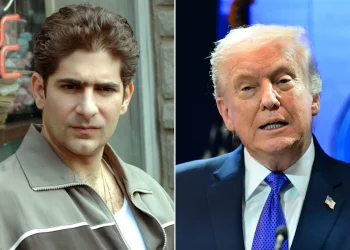The intentional ending of an innocent human life is always wrong; this includes every abortion and every destruction of a human embryo by an IVF clinic. However, the reality is that a majority of Americans will never vote to ban all abortions or prohibit the destruction of embryos created for IVF.
Our country has fallen too deeply into the trap of situational ethics, heavily influenced by the rhetoric of choice. The overturning of Roe v. Wade demonstrated that a significant portion of Americans is willing to accept the lies of abortion apologists to prevent even the possibility of a complete ban on abortion — even if it means sacrificing thousands of near-term babies, as demanded by the Left’s extreme stance on abortion on demand until birth.
The failure of Kansas’ referendum, which would have allowed the state legislature to regulate abortion, underscores this point, as does the success of various other state constitutional referenda on abortion passed after the Dobbs decision. For similar reasons, a federal abortion ban stands no chance.
No amount of righteousness — and the absolutist pro-life position is righteous — will change that reality.
So, what should dedicated pro-life voters do?
The Democrat Party has long proven itself unworthy of the pro-life vote. But should pro-lifers now withhold their vote from the Republican Party, given that the party’s platform has removed its goal for a 20-week federal limit on abortion and instead proclaims that abortion regulation should be left to the states?
Critics of this approach, which is championed by Trump, rightly point out that we didn’t leave slavery to the individual states because slavery was intrinsically evil, just as abortion is. Furthermore, Roe v. Wade did not, as some suggest, make abortion a state issue; the Supreme Court returned the question of abortion’s legality to the people through legislative branches, which include both Congress and statehouses.
Yet, the Republican platform and the Trump-Vance ticket have abandoned efforts to advance pro-life positions, and, on the contrary, seem supportive of the unregulated destruction of human embryos through IVF.
Should pro-life voters, then, abandon the party and Trump?
Two rationales might suggest so. The first is principle: There is no more fundamental right than the right to life, and if a politician and a party refuse to defend the most innocent and defenseless among us, they do not deserve a dedicated pro-lifer’s vote. The second is pragmatic: By withholding their votes, the pro-life block may hope to ensure that future politicians do not similarly discard the right-to-life movement, effectively turning Republicans into a pro-choice “light” party.
I appreciate this pragmatic point and respect principled pro-lifers who withhold their votes out of conscience. Neither should be condemned or ridiculed, or blamed as if they didn’t do enough post-Roe to change the culture of the country.
But for those not compelled by conscience, please consider the ramifications: If Kamala Harris wins, Democrats will pass a federal law that, at a minimum, makes Roe v. Wade (not the more limited holding of Casey) the law of the land, preempting the pro-life laws currently in place in some states. Harris will have the power to appoint federal judges and potentially replace one to three Supreme Court justices — and that’s if Democrats don’t expand and stack the high court. Harris will also hold the bully pulpit, further dehumanizing the unborn and making it more difficult to change the hearts and minds of Americans.
Trump may not govern as a pro-life president, but Harris will most assuredly be the most pro-abortion president ever elected. With Trump in office, the status quo can be maintained until a primary battle four years from now, where a candidate willing to fight for the sanctity of life can emerge. While society may not yet be open to laws that protect all human life, a pro-life candidate can still support a federal ban on late-term abortions while working to support pregnancy resource centers and promoting life.
It took us 50 years to get to where we are, and it will take decades more to move society toward a place where the populace will agree to ban most abortions. But if Harris is elected, we may never have the chance to start changing hearts, minds, and laws.
Margot Cleveland is an investigative journalist, legal analyst, and senior legal correspondent for The Federalist. Her work has appeared in The Wall Street Journal, The American Spectator, the New Criterion, National Review Online, Townhall.com, the Daily Signal, USA Today, and the Detroit Free Press. She is also a regular guest on nationally syndicated radio programs and on Fox News, Fox Business, and Newsmax. Cleveland, a lawyer and graduate of Notre Dame Law School, where she earned the Hoynes Prize, served as a permanent law clerk for a federal appellate judge on the Seventh Circuit Court of Appeals for nearly 25 years. She is also a former full-time university faculty member and now teaches as an adjunct from time to time. Additionally, she serves as of counsel for the New Civil Liberties Alliance. Cleveland is on Twitter at @ProfMJCleveland, where you can read more about her greatest accomplishments — her dear husband and dear son. The views expressed here are Cleveland’s in her private capacity.
 Telegram is where we really talk. Don't miss out!
Telegram is where we really talk. Don't miss out!








